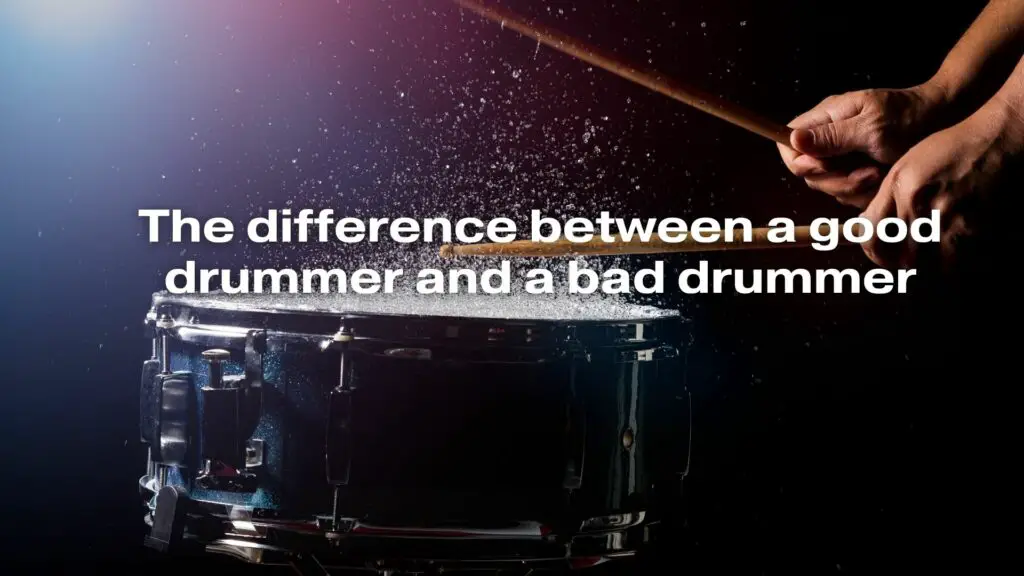In the world of music, drummers play a pivotal role in shaping the rhythm and energy of a song. A skilled drummer can make a band’s performance shine, while a less capable one can drag down the entire musical experience. This article explores the stark contrast between a good drummer and a bad drummer, shedding light on the key factors that distinguish them.
- Technical Proficiency
Good Drummer: A good drummer possesses solid technical skills, able to maintain a steady beat and execute fundamental drumming techniques. They have a good command of basic rhythms and timekeeping, ensuring that the band stays in sync.
Bad Drummer: A bad drummer often lacks technical proficiency, struggling to keep consistent time or perform even the most basic drumming patterns. Their lack of skill can result in erratic tempos, poorly executed fills, and overall inconsistency in their drumming.
- Rhythm and Timing
Good Drummer: A good drummer has a natural sense of rhythm and timing. They can effortlessly lock into the groove of a song, ensuring that the music flows smoothly. Their ability to maintain a consistent tempo is vital for keeping the band and audience engaged.
Bad Drummer: A bad drummer frequently exhibits poor rhythm and timing. They may speed up, slow down, or fluctuate in tempo during a performance, causing disarray in the music. This lack of control can disrupt the entire band’s cohesion.
- Dynamics and Expression
Good Drummer: Good drummers understand the importance of dynamics and expression. They know how to use varying levels of force, accents, and subtleties in their playing to create an engaging and captivating performance.
Bad Drummer: A bad drummer often lacks dynamics and expression in their playing. Their drumming may sound monotonous, with no differentiation in volume or intensity, resulting in a lackluster and uninteresting performance.
- Consistency
Good Drummer: A good drummer is consistent in their performance, delivering a reliable and steady foundation for the music. Their ability to replicate patterns accurately and maintain a consistent level of proficiency is crucial for a band’s success.
Bad Drummer: A bad drummer is inconsistent and unreliable. They may struggle to reproduce patterns or maintain a stable beat throughout a song. This inconsistency can lead to confusion and frustration within the band.
- Musical Awareness
Good Drummer: A good drummer possesses a keen sense of musical awareness. They actively listen to their fellow musicians, adapt to changes in the music, and know when to execute fills or transitions seamlessly.
Bad Drummer: A bad drummer may lack musical awareness, often playing independently of the rest of the band. They may miss cues, fail to anticipate changes in the music, or insert fills at inappropriate times, disrupting the overall performance.
Conclusion
The difference between a good drummer and a bad drummer is profound and can greatly impact the quality of a musical performance. While a good drummer enhances the music with technical proficiency, timing, dynamics, consistency, and musical awareness, a bad drummer can hinder the entire band with a lack of these crucial skills.
Becoming a good drummer requires dedication, practice, and a commitment to improving both technical and musical abilities. Recognizing the disparities between good and bad drummers underscores the significance of the drummer’s role in music and emphasizes the importance of continually striving for excellence in the art of drumming.

